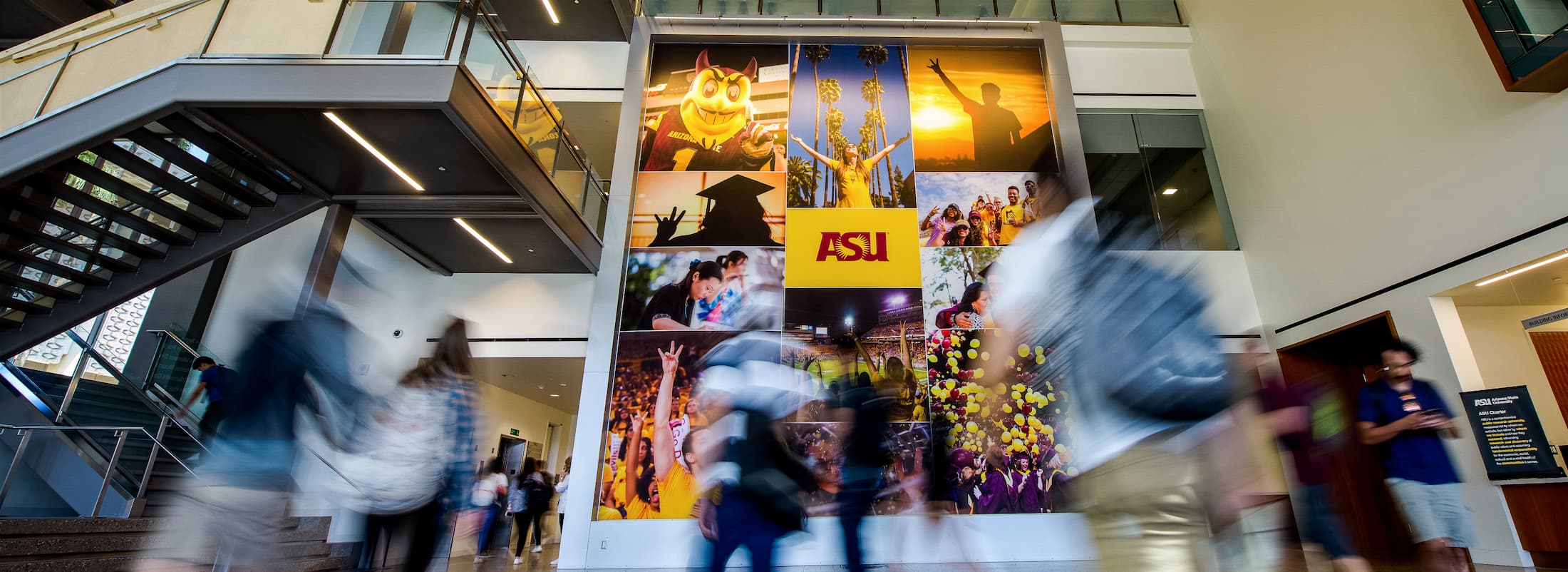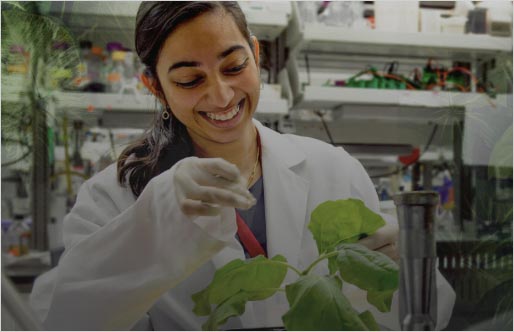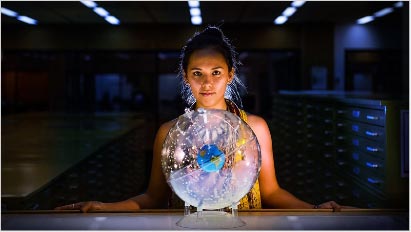
Centers and institutes
Filters

The Biodesign Institute delivers the future of nature-inspired scientific innovation today for the betterment of human health, community safety and global sustainability.
Biodesign Institute
The Biodesign Center for Biocomputing, Security and Society translates insights between computer science and biology, with a focus on understanding and mitigating malicious behavior in complex systems
Biodesign Institute
The Biodesign Center for Bioelectronics and Biosensors develops new detection technologies for biomedical and environmental health research, build wireless personal sensors for mobile health applications and explore fundamental natural phenomena at the single-molecule level for next-generation detection technologies.
Biodesign Institute
The Biodesign Center for Bioenergetics focuses on improved diagnosis and treatment for diseases caused by mitochondrial defects.
Biodesign Institute
The Biodesign Center for Fundamental and Applied Microbiomics is developing an integrated understanding of microbiomes. Our goal is to establish general functional principles that can explain and predict the behavior of microbial communities for a variety of applications.
Biodesign Institute
The Biodesign Center for Health through Microbiomes creates fundamental knowledge to develop microbe-based health interventions and diagnostics for better human health.
Biodesign Institute
The Biodesign Center for Mechanisms of Evolution focuses on the specific mechanisms that govern evolutionary change, starting with the building blocks of cells.
Biodesign Institute
The Biodesign Center for Molecular Design and Biomimetics is designing biomimetic materials at the molecular level to develop a versatile biomimetic toolbox.
Biodesign Institute
The Biodesign Center for Single Molecule Biophysics is developing new methods for single-molecule DNA sequencing. They are interested in how genes work and would like to study the way in which proteins change DNA structure to switch genes on and off.
Biodesign Institute
The Biodesign Swette Center for Environmental Biotechnology aims to be the world’s leading center for environmental biotechnology by producing fundamental and applied scientific concepts, technologies and field-leading people.
Julie Ann Wrigley Global Futures Laboratory
The Center for Biodiversity Outcomes brings together individuals and groups — from academic, nonprofit, policy and corporate sectors — to achieve common goals of biodiversity conservation and sustainable management of natural resources in the 21st century.
The center is poised to become a major international incubator of solution-driven transdisciplinary research, brings together scholars from one of the country's most innovative research universities with experts from SFI’s worldwide community.
The Biodiversity Knowledge Integration Center seeks new solutions to three topics: generating comparative knowledge of life's diversity; promoting the use of integrative informatics tools; and fostering direct and virtual learning experiences with biodiversity data and specimens.
The Center for Bioarchaeological Research (CBR) strives to understand past peoples by examining their health, heritages, identities, ideologies, diets and patterns of mobility.
The Center for Bioenergy and Photosynthesis carries out frontier multidisciplinary scientific research designed to use biological and biologically-based artificial systems to address societal energy needs in a sustainable manner. The center places an emphasis on solar energy conversion and bioinspired energy transformation to meet human needs, and investigates other aspects of photosynthesis that affect society and the environment.
The Center for Biological Physics (CBP) conducts research into biological phenomena using the tools and methods of physics. Key interests span biomolecules, systems biology and cellular dynamics.
The Center for Biology and Society promotes research, education and engagement related to study of the life sciences and their interconnections with society.
Researchers in the center address cell-to-cell variations in physiological parameters by conducting studies to quantify cellular activities such as respiration and gene expression at the single-cell level.
